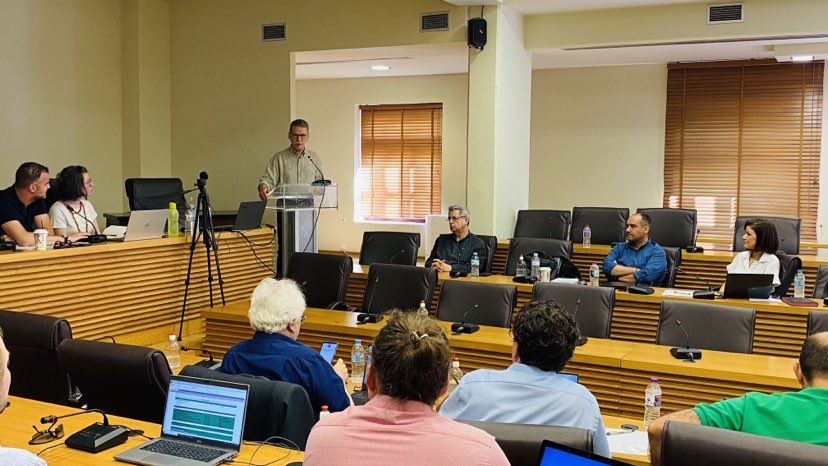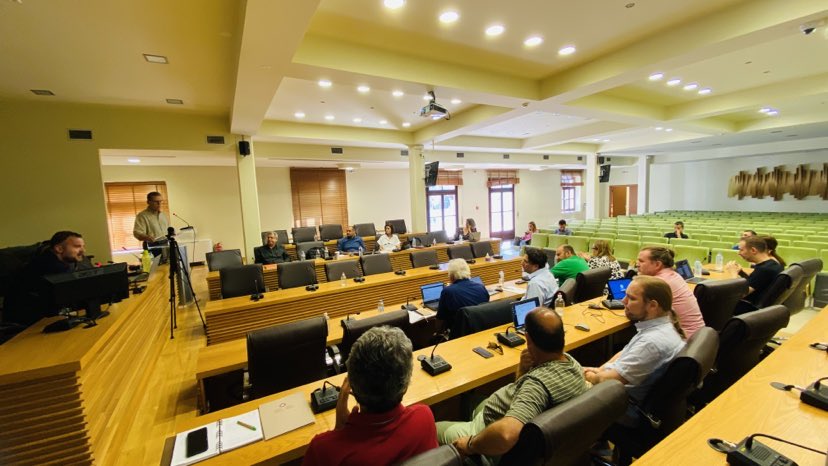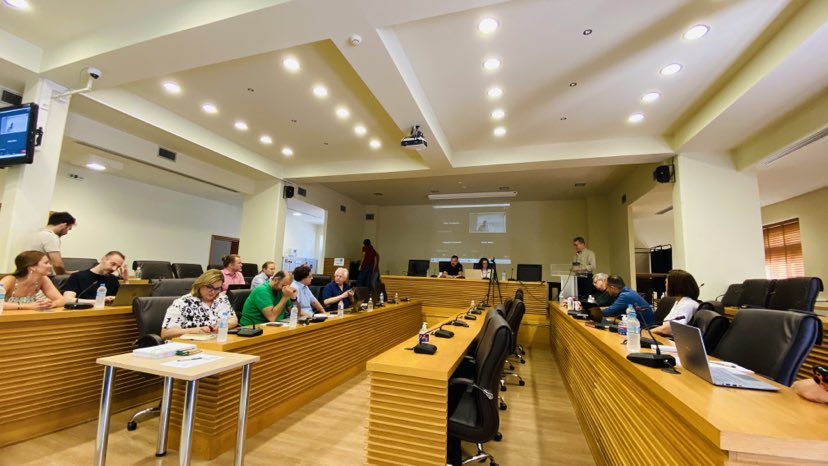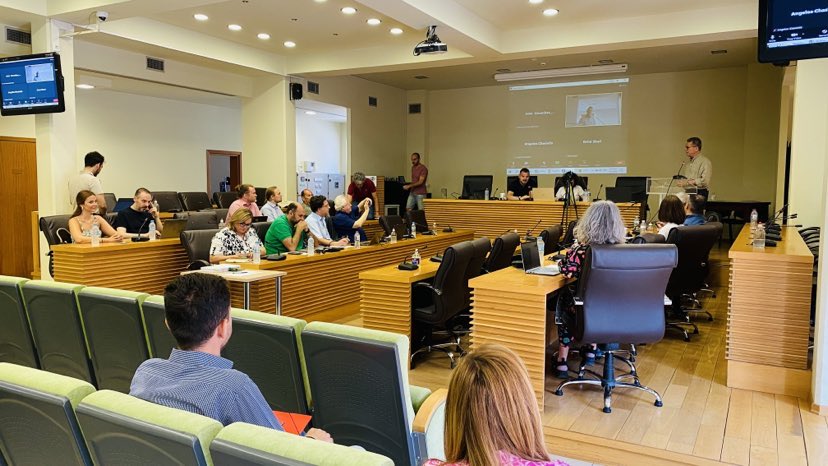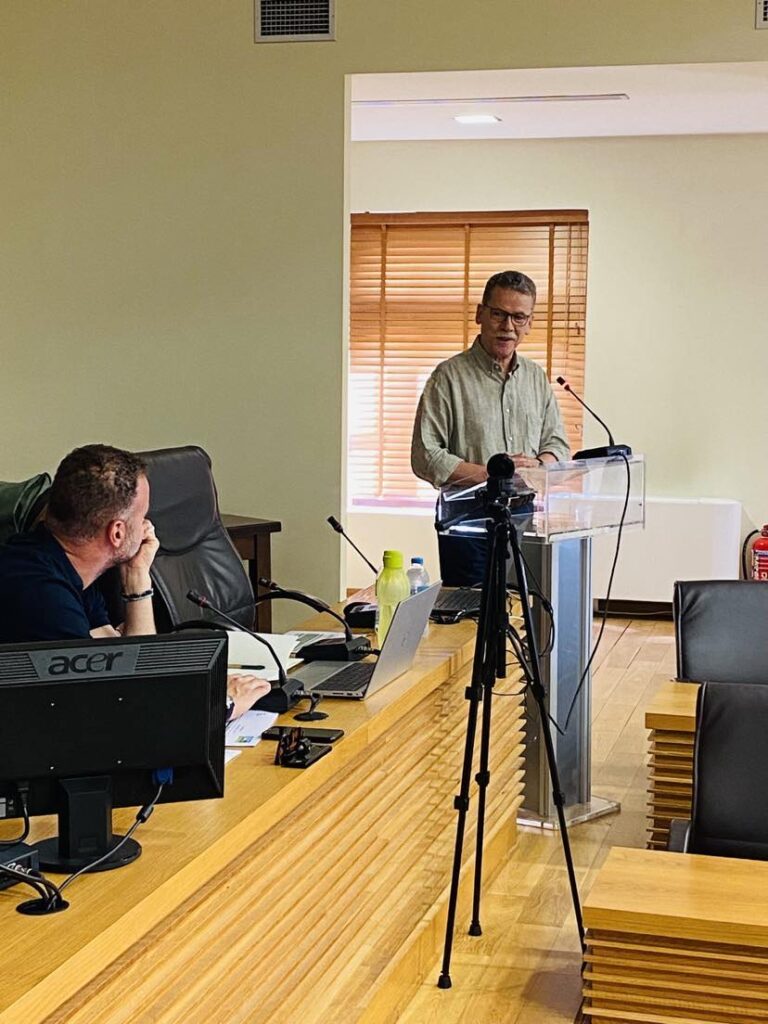The Neutron pilot program, which held its kick-off meeting on July 10 and 11, 2023 in Kozani, with the participation of 11 partners, aims to implement innovative actions to accelerate climate neutrality and decarbonization.
The partners were welcomed by the mayor of Kozani, Lazaros Maloutas who opened the event, emphasizing the importance of the pilot action for Kozani, which is recognized at a European level.
During the first day of the meeting, there were given details about the Neutron project, while a presentation of the participants took place and the scope of the project undertaken by each partner was developed.
On the second day, a visit was made to the district heating facilities of DEYAK, while executives of the company informed the partners about the district heating system.
The NEUTRON project is one of the 25 pilot projects selected under the European Mission of “100 Climate Neutral and Smart Cities”, and concerns research on the substitution of part of the thermal energy of District Heating by RES, including the testing of an innovative storage technology energy (Green Heat Module) which is at the center of a circular economy energy chain.
Partners in the 1 million euro project are organizations and academic/research centers such as DEYAK, Diadyma, EKETA (Institute of Chemical Processes and Energy Resources), Aristotle University of Thessaloniki (Department of Mechanical Engineering and School of Law), the EYATH, the Solar Institut Jülich of the Aachen University of Applied Sciences, as well as technology companies such as Kraftanlagen, a subsidiary of the French technological giant Bouygues, ABB of Greece, ZEUS of Cyprus and Ergoncell based in Kozani.
The aim of the project is to replace the thermal energy of District Heating with RES, especially during peak periods, with the aim of reducing energy costs in the medium term and also reducing the emissions from the heating of buildings by 2030. The aim is the «greenest» operation of district heating.
The beneficiaries of the project will be mainly the final consumers, while the results of the project are expected to highlight the application of an innovative and economically viable technology that has at its heart a thermal energy storage battery that will result from the production of electricity from agro- photovoltaics, from the utilization of sewage sludge and waste in the context of a sustainable process in the direction of the circular economy.
The long-term benefits include the strengthening of productivity at the local level and the reduction of dependence on non-renewable resources and mainly fossil fuels, while this intervention of the Municipality is expected to reduce the emitted pollutants helping it to achieve the goal of Climate Neutrality by 2030.
The results of the two-year project will be evaluated by the European Commission in order to be good practice and an example for other European cities to follow, in order to achieve the long-term goal of the European Green Deal and in particular the European Climate Law for full climate neutrality by 2050.

